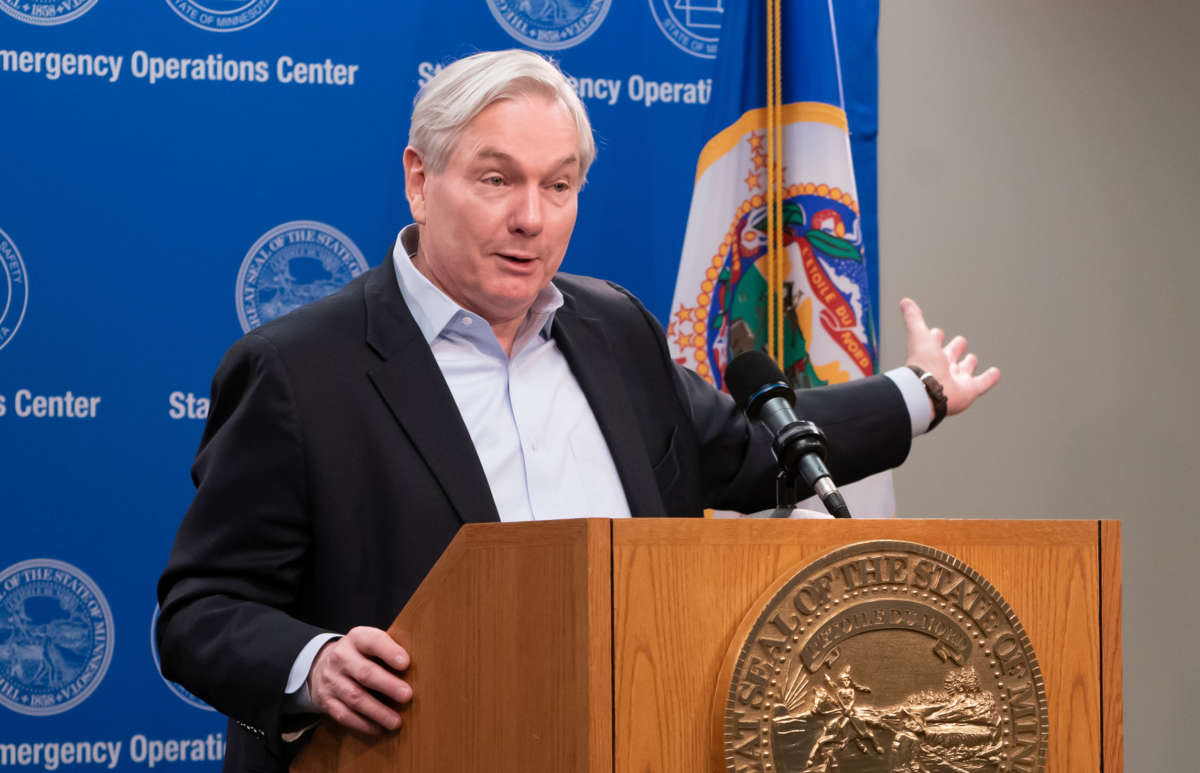One of President-elect Joe Biden’s coronavirus advisers suggested this week that the pandemic could be stemmed significantly, resulting in reduced hospitalizations and lower daily COVID-19 case counts and deaths, if the country dedicated itself to a four-to-six weeks long nationwide stay-at-home order.
Michael Osterholm, the current director of the Center for Infectious Disease Research and Policy at the University of Minnesota, was just named to a list of coronavirus advisers to Biden on Monday. Speaking to Yahoo! Finance on Wednesday, Osterholm suggested that a nationwide “lockdown” could ease the economic burdens created by the coronavirus pandemic in the U.S.
Osterholm explained that the nation is heading toward a “COVID hell” this winter. He acknowledged that a “pandemic fatigue” was partly to blame, as Americans grow weary of wearing masks and adhering to social distancing guidelines.
Despite that, however, a nationwide stay-at-home order for a month or so could stabilize or even reduce the number of new cases being witnessed daily. Such a plan, if supported by the federal government, could restart the nation’s economy too, he added.
“We could pay for a package right now to cover all of the wages, lost wages for individual workers, for losses to small companies, to medium-sized companies or city, state, county governments,” Osterholm said. “We could do all of that. If we did that, then we could lock down for four to six weeks.”
Doing so at a time when a potential vaccine may be made available could be doubly beneficial, he added.
“We could really watch ourselves cruising into the vaccine availability in the first and second quarter of next year while bringing back the economy long before that,” Osterholm said.
While several states issued similar stay-at-home orders in the spring of this year to quell the spread of the virus, Osterholm, writing in an op-ed in August alongside Minneapolis Federal Reserve President Neel Kashkari, had noted that those orders were not successful because they lacked standardization.
“The problem with the March-to-May lockdown was that it was not uniformly stringent across the country,” the pair wrote in their op-ed, which was published in The New York Times this summer. “For example, Minnesota deemed 78 percent of its workers essential. To be effective, the lockdown has to be as comprehensive and strict as possible.”
The stay-at-home order Osterholm has proposed would be similar in scope, he explained, to what New Zealand put in place earlier this year. That nation’s response to coronavirus is widely regarded as the gold-standard for how to contain and eradicate COVID-19.
The plan proposed by Osterholm, if implemented by Biden’s administration, would be a stark departure from what President Donald Trump has done — or rather, not done — since the beginning of the pandemic.
Trump campaigned hard against the idea of issuing stay-at-home orders, or of listening to health experts in general, in order to slow the spread of coronavirus. Instead, his administration has opted for adopting an approach that endorses the idea that “herd immunity” could eventually reduce the spread of the virus — a plan that many have criticized as being cruel, and tied to the idea of eugenics.
Trump reluctantly accepted a plan from his health experts in March that encouraged social distancing. But after a mere eight days of promoting that idea, he grew visibly impatient with it, and started demanding that states, which had issued their own stay-at-home orders in adherence to the principles of his plan, reopen their economies.
The president, it was said by sources with knowledge of his thinking, was worried that the shutdowns would be harmful to the economy, which in turn would be detrimental to his reelection prospects.
Since the pandemic began in early March, close to 242,000 Americans have died from coronavirus. Daily COVID-19 cases being reported are regularly reaching new record highs, with more than 142,000 new cases being announced on Wednesday.
Join us in defending the truth before it’s too late
The future of independent journalism is uncertain, and the consequences of losing it are too grave to ignore. To ensure Truthout remains safe, strong, and free, we need to raise $27,000 in the next 24 hours. Every dollar raised goes directly toward the costs of producing news you can trust.
Please give what you can — because by supporting us with a tax-deductible donation, you’re not just preserving a source of news, you’re helping to safeguard what’s left of our democracy.
